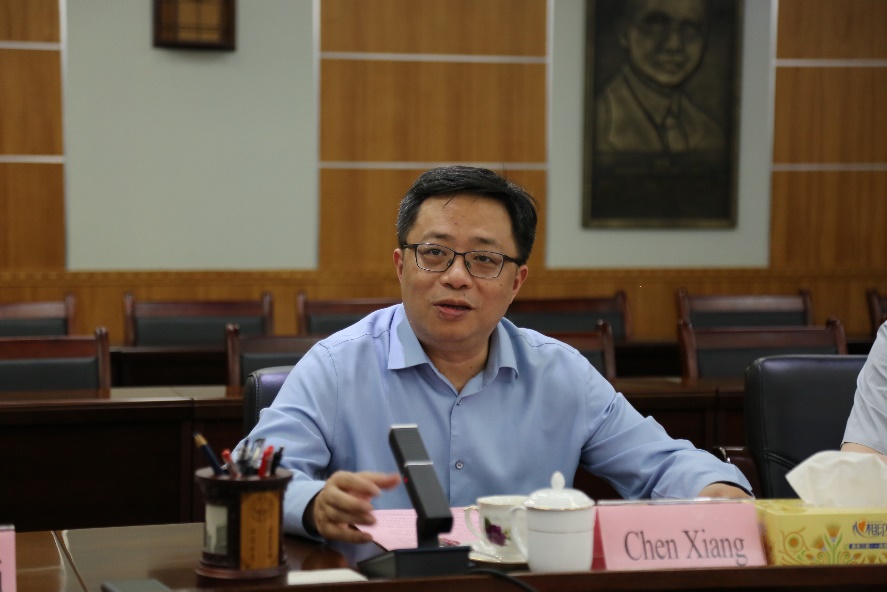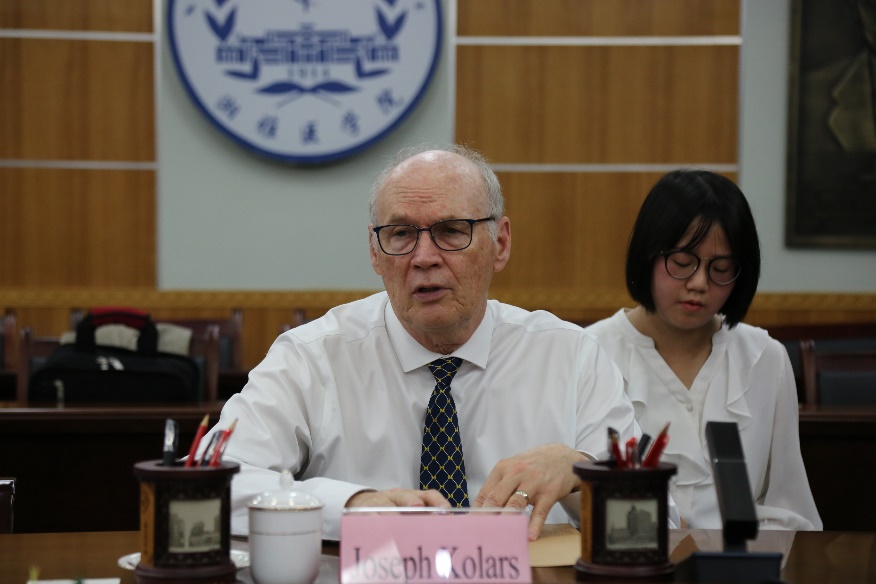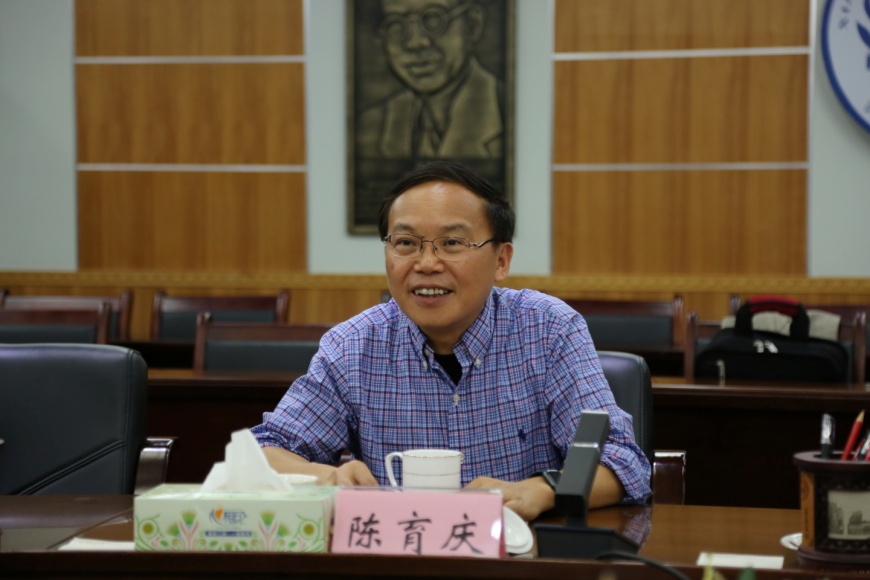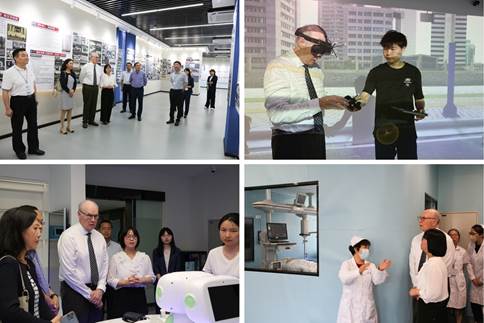On May 18th, a delegation from the University of Michigan Medical School, including Vice Dean Joseph Kolars, Professor Yucheng Chen from the Cardiovascular Medicine Center, and Amy Huang, Director of the Asian Program, visited our campus for exchange and discussions. The visit was also attended by Chen Xiang, the Executive Vice President of Central South Universityand Dean of Xiangya School of Medicine, Li Zhihong,Vice President of Central South Universityas well as officials from the International Cooperation and Exchange Office and Xiangya School of Medicine.The two parties held a discussion at the meeting room on the eighth floor of the Xiaoqian Building of Xiangya School of Medicine, presided over by Li Zhihong.

Chen Xiang introduced the recent significant developments in the medical research platforms at Xiangya. He emphasized that Xiangya has been an early pioneer in international cooperation, reaping substantial benefits, and it is committed to further expanding international collaboration in medical education, resident physician training, enhancement of clinical treatment capabilities, and clinical scientific research. The MD+PhD dual-degree program between Central South University and the University of Michigan has provided an effective pathway for cultivating high-caliber medical professionals.

Joseph Kolars expressed his delight at Xiangya's rapid development and recalled the establishment of the eight-year medical student exchange program in 2014. He noted the strong connection between students from Xiangya and the University of Michigan through exchanges, deepening friendship between the institutions. Kolars affirmed Michigan's commitment to enhancing friendly cooperation with Xiangya, leveraging the collective expertise of both institutions to jointly nurture more medical talents and create a bright future for Sino-American medical education exchange.

Yucheng Chen reviewed the development of medical education cooperation between the two institutions, acknowledging the significant achievements of the collaboration. He attributed the success to the continuous efforts of Xiangya students and the careful cultivation and joint efforts of both universities.
Prior to the meeting, Joseph Kolars and his delegation visited the History Museum of Xiangya School of Nursing, the "Healthy Xiaoya" elderly smart health care robot data center, as well as teaching spaces for scenario simulations and basic experiments. Kolars commended Xiangya's development in nursing science and praised the seamless integration of virtual and hardware components during a simulation of traffic accident rescue using VR glasses and interactive gloves.

Since the commencement of our collaboration, the University of Michigan Medical School and Xiangya School of Medicine have successfully propelled initiatives like the eight-year medical student exchange program and MD+PhD dual-degree program. Looking ahead, both institutions are committed to enhancing this partnership, jointly forging new milestones in medical talent development, expanding the scope of medical education exchange between China and the United States, and delving into deeper realms of international medical innovation cooperation.

(First Review: Li Ruijun, Second Review: Zhou Xingcan, Third Review: Chang Shi)